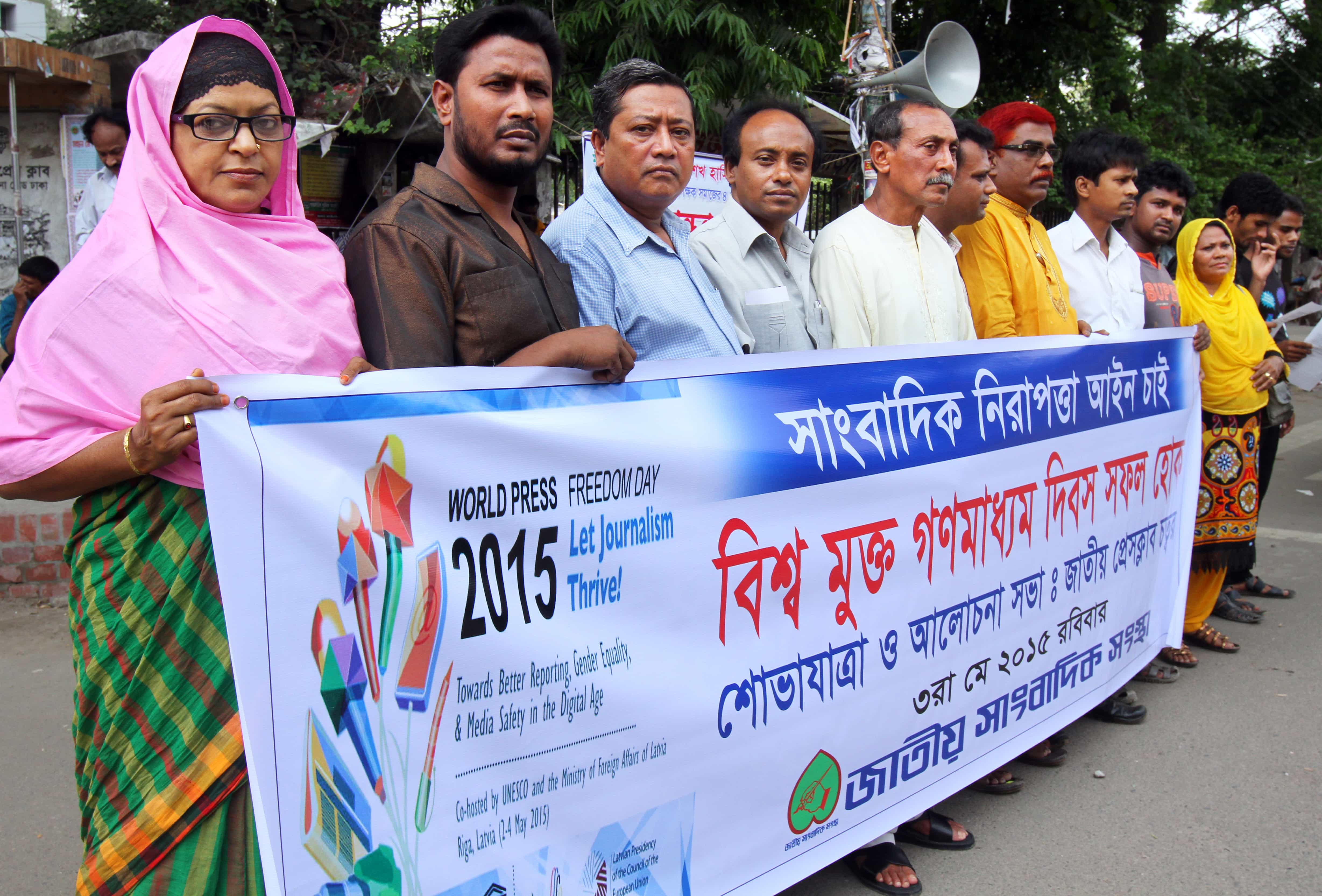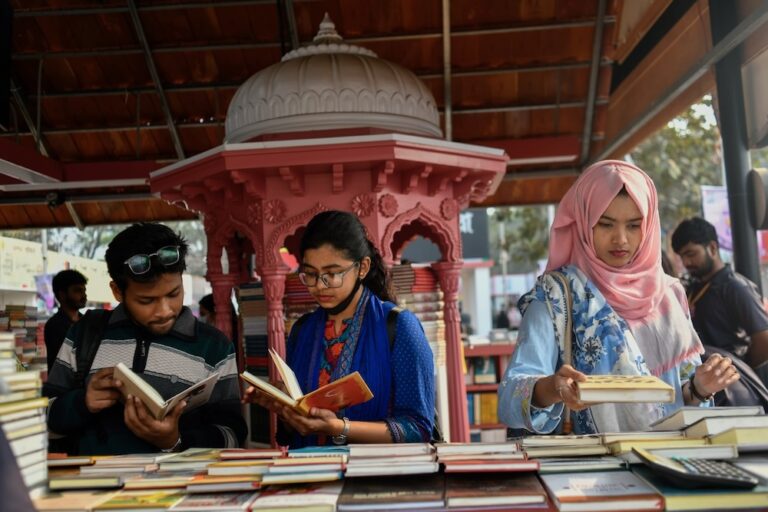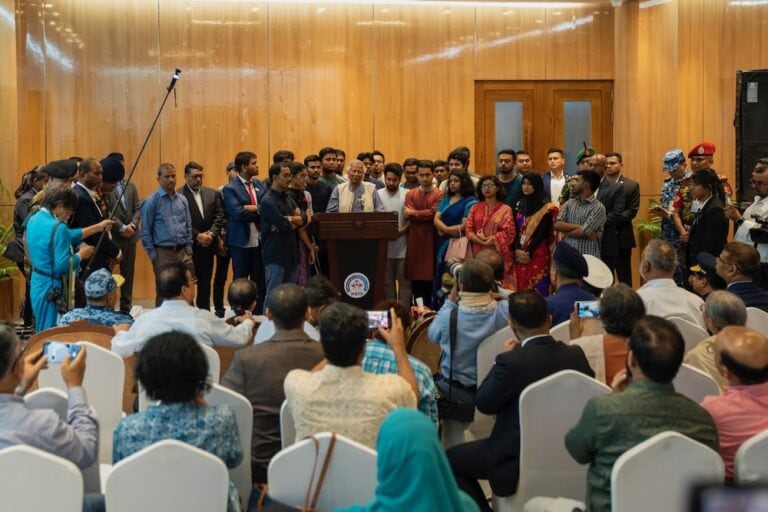According to ARTICLE 19's report, there were a significant number of attacks on Bangladesh journalists and an alarming increase in violations perpetrated by state actors. However, there was not a single conviction for violence against journalists in 2014.
This statement was originally published on article19.org on 1 May 2015.
In its report Freedom of Expression in Bangladesh 2014, ARTICLE 19 recorded a total of 213 attacks in 2014: 205 against journalists and 8 against bloggers and online users.
The report highlights that:
- Four journalists were killed;
- Attacks on physical integrity remain significant with 40 serious injuries and 62 minor assaults;
- An alarming 106 percent increase in harassment with figures rising from 33 in 2013 to 68 in 2014
- 17 arrests included eight bloggers and online users;
- 13 media persons faced contempt proceedings, including editors, publishers, senior officers of journalists’ associations and a media executive;
- Criminalisation of online expression continues; among those arrested under the Information, Communications Technology Act 2006, eight still remain in custody;
- Women journalists continue to face work place hostility and gender based harassment and discrimination when seeking leadership positions in press associations.
The report finds that there has been an alarming increase in violations perpetrated by state actors, from 12.5% in 2013 to 33.69% in 2014. An overall 23% were carried out by the police, Special Forces such as the Rapid Action Battalion (RAB) and by detective branch of the police. In 11% of the cases attacks were perpetrated by public officials working outside law enforcement agencies.
66.31% of attacks were carried out by non-state actors and 33.69% of the overall violations were perpetrated by leaders and violent activists of the political party in power, emerging as a dominant force against the safety and security of journalists.
The report did not record a single conviction for violence against journalists in 2014. Of the violations in only five cases investigations have been concluded. In 27% of the cases investigations are pending while the vast majority of cases (70%) remain out of the reach of law.
The report finds worrying patterns of insufficient legal action against attacks on journalists, taking no steps in 56.55% of cases. In most cases victims did not even notify the police, while in the rest, no action was taken by the police. Victims mentioned apathy in the Bangladesh legal system, fear of reprisals and lack of support as the main causes for not taking any steps.
The report emphasises that inconsistencies and ambiguities in laws provide ample opportunities to use the law as an instrument for harassment. For example when expressions are penalised on grounds of “hurtful to the image of the state or person” or “hurtful to religious sentiments”, under the ICT law. The law provides no guidance as to what constitutes these grounds leaving it widely open for arbitrary application by law enforcement agencies. This is deeply problematic.
The report concludes that:
- Together non-action for attacks, delays in investigation reaching chronic levels and the absence of convictions contributes to the continued culture of impunity in Bangladesh that is tragically becoming a harsh reality for journalists;
- Opportunities for arbitrary use of the laws is promoting a culture of fear and resulting in shrinking space for online expression, tacitly forcing online activists, users, and bloggers to resort to self-censorship when expressing their opinions. This is also applicable to journalists as many media companies publish online editions;
- A culture of getting away without any legal consequence has only served to embolden state actors, even those outside the remit of law enforcement, such as leaders and violent activists of the political parties.
- The report recommends that as a member state that has endorsed the 2012 United Nations Plan of Action on the Safety of Journalists and the Issue of Impunity, Bangladesh now needs to take effective measures to prevent illegal attempts to limit the right to freedom of expression and the Government must fulfill its Universal Periodic Review commitments.
Tahmina Rahman, Director of ARTICLE 19 Bangladesh and South Asia said: “Given the absence of convictions and delays in investigations reaching chronic levels in Bangladesh we call on the Government to adopt a ‘holistic protection’ approach to address issues of protection, safety and impunity including the establishment of a specialised mechanism to provide protection and to investigate attacks on freedom of expression overseen by an independent body. In this regard lessons can be drawn from initiatives undertaken along the lines of what is being done in Nepal currently”.



